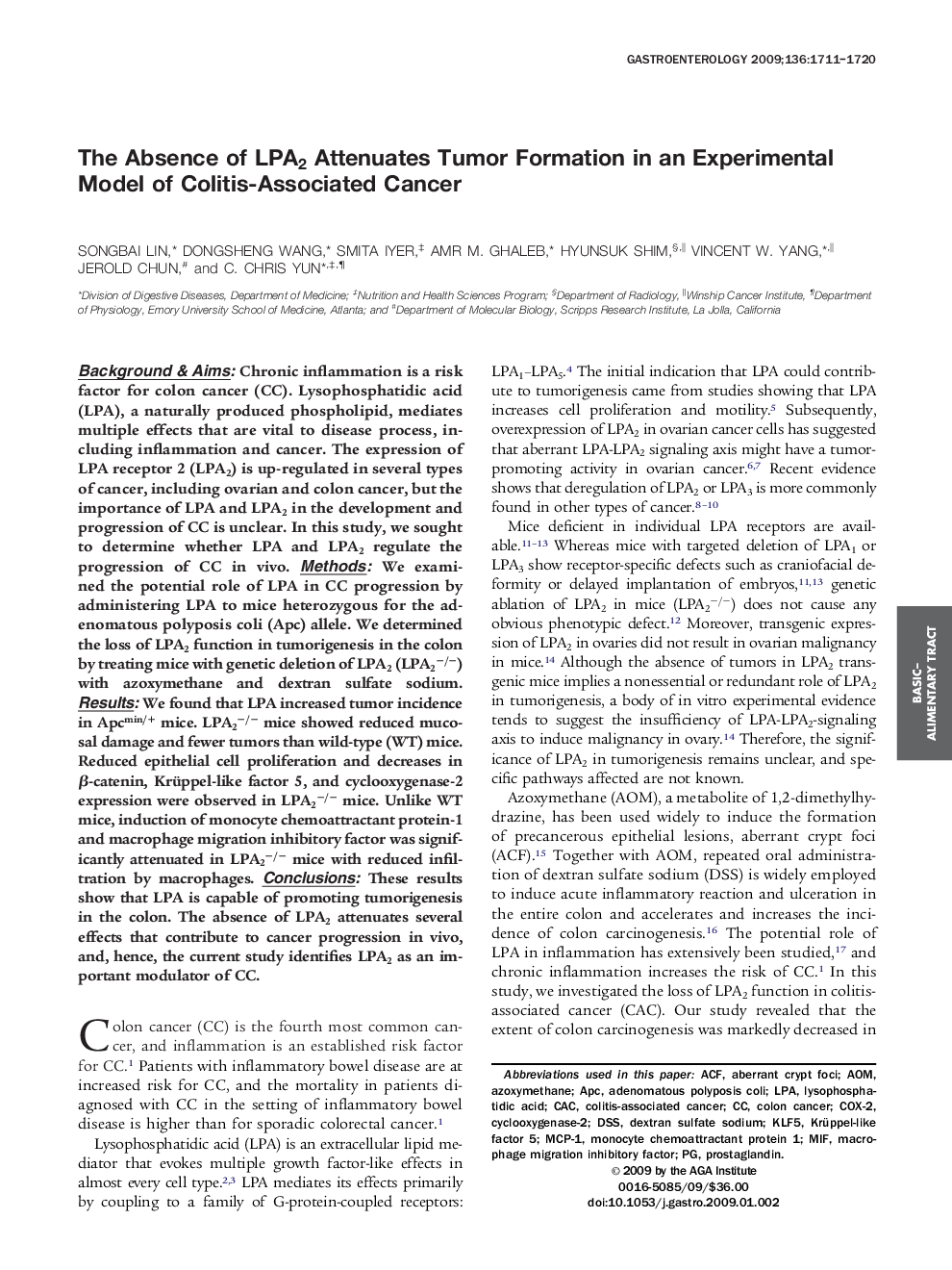| Article ID | Journal | Published Year | Pages | File Type |
|---|---|---|---|---|
| 3295094 | Gastroenterology | 2009 | 10 Pages |
Background & AimsChronic inflammation is a risk factor for colon cancer (CC). Lysophosphatidic acid (LPA), a naturally produced phospholipid, mediates multiple effects that are vital to disease process, including inflammation and cancer. The expression of LPA receptor 2 (LPA2) is up-regulated in several types of cancer, including ovarian and colon cancer, but the importance of LPA and LPA2 in the development and progression of CC is unclear. In this study, we sought to determine whether LPA and LPA2 regulate the progression of CC in vivo.MethodsWe examined the potential role of LPA in CC progression by administering LPA to mice heterozygous for the adenomatous polyposis coli (Apc) allele. We determined the loss of LPA2 function in tumorigenesis in the colon by treating mice with genetic deletion of LPA2 (LPA2−/−) with azoxymethane and dextran sulfate sodium.ResultsWe found that LPA increased tumor incidence in Apcmin/+ mice. LPA2−/− mice showed reduced mucosal damage and fewer tumors than wild-type (WT) mice. Reduced epithelial cell proliferation and decreases in β-catenin, Krüppel-like factor 5, and cyclooxygenase-2 expression were observed in LPA2−/− mice. Unlike WT mice, induction of monocyte chemoattractant protein-1 and macrophage migration inhibitory factor was significantly attenuated in LPA2−/− mice with reduced infiltration by macrophages.ConclusionsThese results show that LPA is capable of promoting tumorigenesis in the colon. The absence of LPA2 attenuates several effects that contribute to cancer progression in vivo, and, hence, the current study identifies LPA2 as an important modulator of CC.
